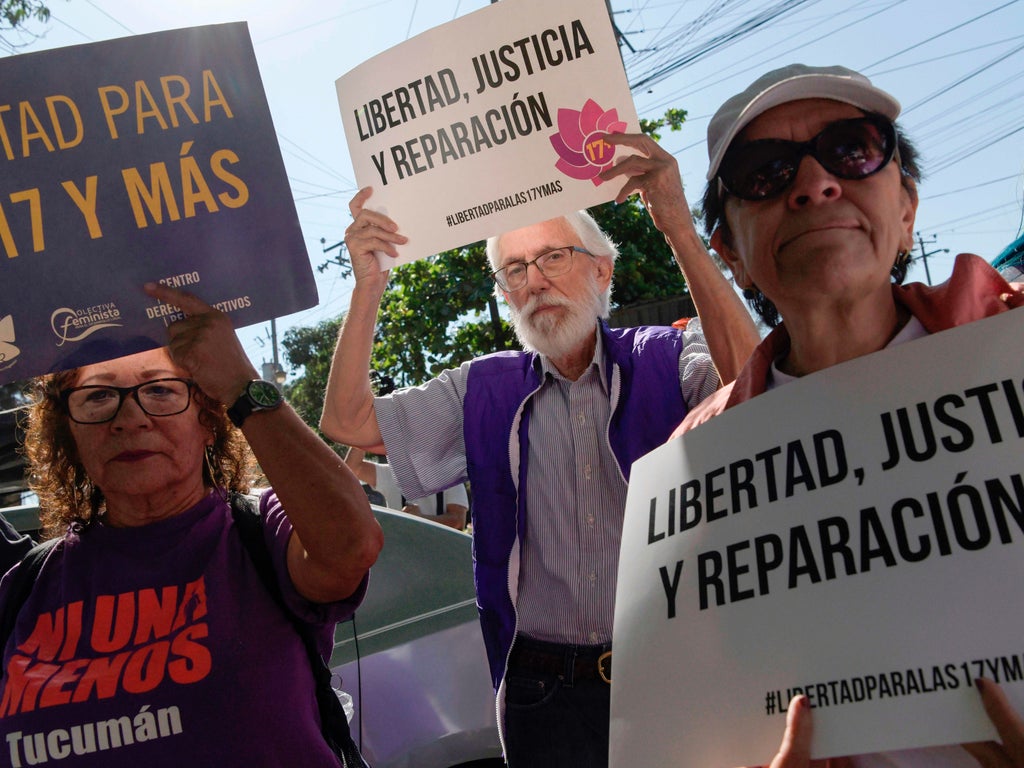
A woman in El Salvador who suffered a miscarriage has become the latest to be sentenced to prison for aborting a pregnancy, in a case that human rights campaigners have labelled as a stark warning for the United States.
Identified only as “Esme”, the woman was sentenced to 30 years in prison on Monday for aggravated homicide, the Citizen Group for the Decriminalization of Abortion said.
Esme had been in pre-trial detention since 2020, when she was reportedly arrested for seeking medical care in a public hospital. She later suffered a life threatening emergency that ended her pregnancy, the abortion group said.
“The judge acted with partiality, giving greater weight to the version offered by the Attorney General’s Office, which was loaded with stigmas and gender stereotypes,” the group said, vowing to appeal.
El Salvador is a predominantly Catholic country with a total ban on abortion with no exception for cases involving a mother’s life being at risk or with rape, according to the Pulitzer Centre.
Hundreds of woman have been arrested and 180 imprisoned as a result of the law in the past two decades, although the country’s government had moved recently to commute the sentences of a handful of women.
That included Sara Rogel – who was freed last year on parole after carrying out 10 years of her 30 year sentence. Her case attracted widespread protests in El Salvador.
Paula Avila-Guillen, an international human rights lawyer, told The Guardian on Wednesdaythat Esme’s sentencing was a sign that El Salvador had not taken a step forward when it came to protecting women’s rights however.
“Esme’s sentencing is a devastating step backward for the progress that has been made in the unlawful criminalisation of women suffering obstetric emergencies in El Salvador,” she said.
Ms Avila-Guillen, the executive director of the Women’s Equality Center, added that the situation in El Salvador was a stark warning for Americans considering removing abortion right enshrined in the 1973 ruling in Roe v Wade.
“Everyone in the US should have their eyes on El Salvador right now to understand exactly what a future without Roe entails,” she said. The Supreme Court of the United States is still to rule on a challenge to Roe.
El Salvador is not the only Central or South American to enforce strict abortion laws, although it is allowed in some cases in Brazil and Chile when a mother’s life is at risk.
The Associated Press contributed to this report







